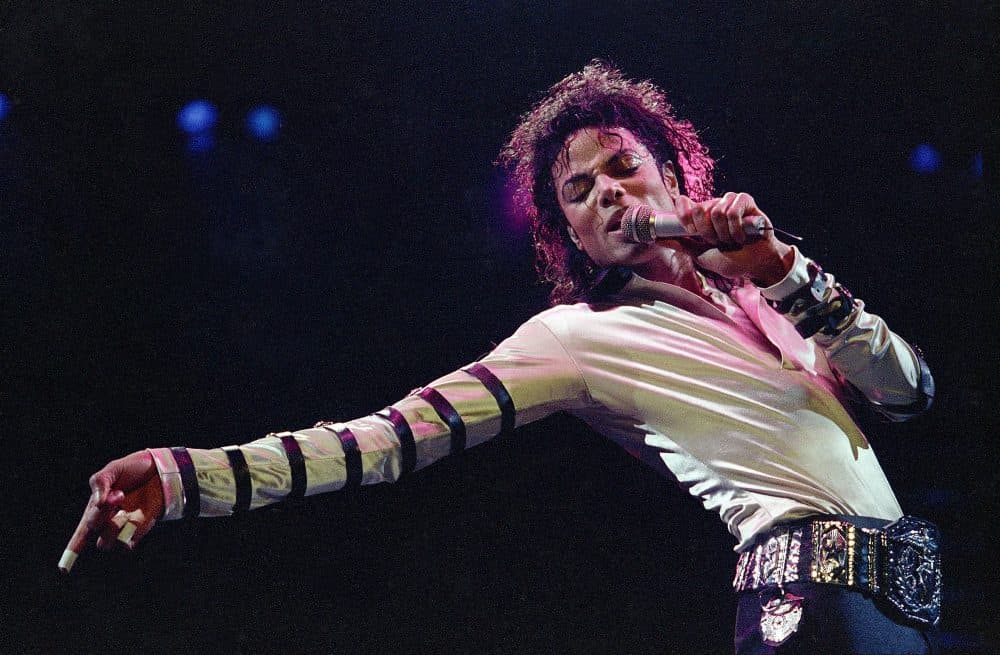Advertisement
Commentary
After Michael Jackson, Trading Cancel Culture For Reconciliation

Another month, another powerful and popular celebrity exposed as an alleged sexual predator. This time it’s Michael Jackson, the subject of the scathing "Leaving Neverland" documentary. Radio stations across the country have already begun to pull Jackson’s music from rotation. Cancel culture demands that anyone accused simply be expunged: them, their products and any fruit of their poisonous tree be blasted off into space never to be heard from again.
But humans don’t go away, and the work of some people is far-reaching, creating muddy boundaries of what and whom to cancel. Canceling someone may please a Twitter mob, but does it help build a healthier future?
Erasing Jackson from pop culture is more challenging than not playing his records. Cancelling every artist who worked with him or was inspired by him would leave the airwaves of pop stations empty. It would take enormous energy to root out every thread that Michael Jackson’s work sewed into the wider culture, leaving us a revised history full of holes where Jackson’s influence existed.
That energy might be better spent dismantling the system of starpower that has protected predators.
These times require us to respond to allegations of child abuse, learn from the past, break the cycle and prevent future victims. Not playing his records may silence Jackson but fails to give voice to his victims or ask his enablers for atonement.
This moment is an opportunity for our culture to grow beyond canceling people to a more nuanced and thoughtful approach to problem people.
We don’t have to listen to Michael Jackson, but we do need to grapple with the questions of reconciliation. This moment is an opportunity for our culture to grow beyond canceling people to a more nuanced and thoughtful approach to problem people.
We can condemn Jackson for his deplorable behavior, but we also need to point the finger back at ourselves, back to a pop culture environment that ignored the many stories of Jackson’s predatory behavior, which played out in the court of public opinion as well as courts of law.
Reflection requires us to think about the kinds of artists and entertainment that our culture has embraced. R. Kelly’s songs about sex and Jackson’s songs about loving children were all at one time top-rated entertainment. The star-producing industry and those who consume it ignore harm to embrace celebrity.
What do we do when stars turned predators are too big to fail? How do we erase the work of an artist like Jackson who influenced so much of the culture that we embrace, whose reach touches so much of what we listen to and watch? When superstars like Jackson are helped by hundreds of employees and edified by industry professionals? How far does the blame go?
Advertisement
Pulling Jackson’s records, getting outraged and tweeting about it is not enough to help the #MeToo movement create the solutions needed to stop the cycles of sexual abuse.
The star-producing industry and those who consume it ignore harm to embrace celebrity.
Since the explosion of #MeToo into the mainstream, the mother of the movement Tarana Burke has reminded us that we must not just recognize the problem but do the work of healing.
Instead of just canceling them, we can try to make sense of what happened, work to expose the truth, support the victims, and learn how to prevent this in the future. Imagine if we focused our social media outrage instead on understanding the mechanisms that allow predators to flourish, from broken families to enablers more concerned with making money off star power than protecting children.
Instead of demanding that perpetrators step back, what if they come forward, come clean, and pay restitution to those whom they have hurt?
Yes, we want to take away the platform of predators, but we also need a process to deal with the many people who have created such enormous harm, a process that helps us draw lessons that inform legislation and support services to address the massive epidemic of sexual assault in our country.
We need a codified way in which the wealthy and powerful contribute what they have made on the backs of their victims to healing those same victims and hundreds of others preyed on by stars too small to command a documentary. Reconciliation requires paving a path to justice and closure. The question is if we can get there in a culture where shaming people gets so many more likes.